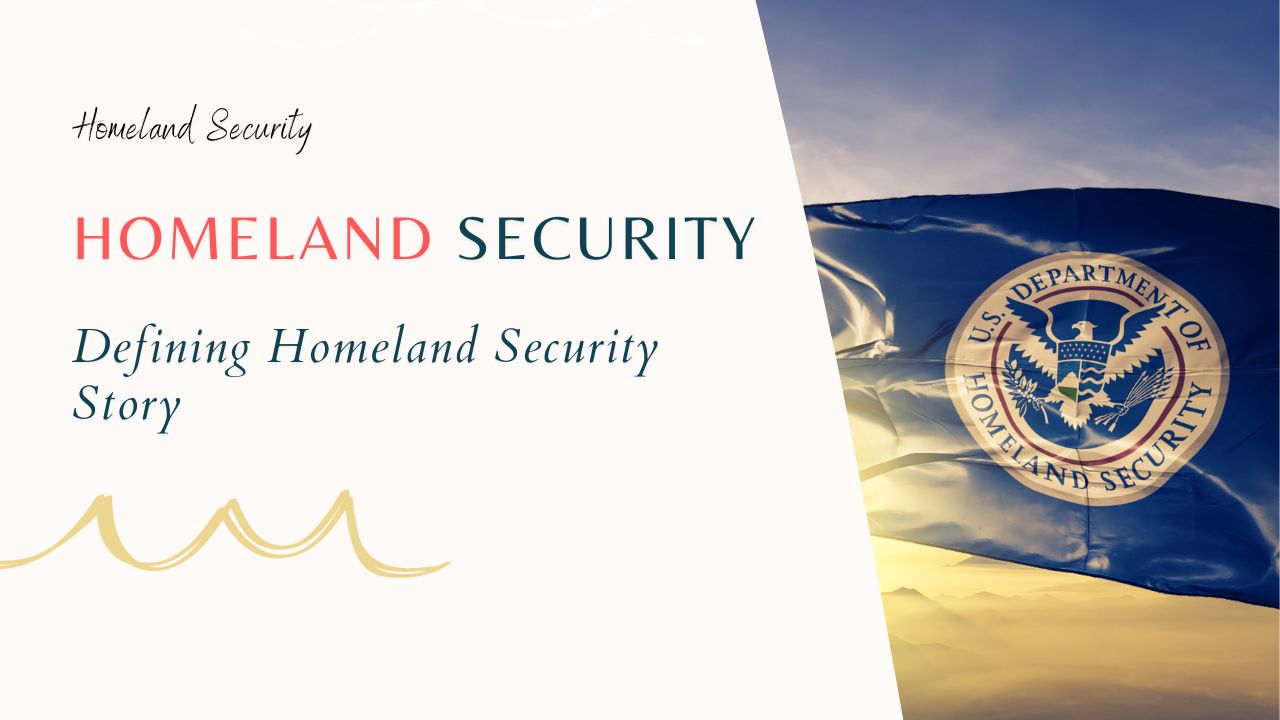In this article i am gone to share Defining Homeland Security Story with you.. | In this we will examine events following 9/11 and define Homeland Security. In the immediate aftermath of 9/11, the nation quickly moved to close the gaps exposed by the attacks.
President Bush created the Office of Homeland Security to direct measures from the White House. In quick succession, Congress passed legislation creating the Transportation Security Administration to over haul aviation security and the USA Patriot Act to facilitate closer coordination between the FBI and CIA. Congress also picked up it’s previous legislation and started moving toward creating a new department of Homeland Security. With input from the White House, Congress passed and the President signed the Homeland Security Act in November 2002. All these actions begged the question, what is Homeland Security?
what is Homeland Security?
Homeland Security was first defined in the 2002 National Homeland Security Strategy. It was defined as a concerted national effort to prevent terrorist attacks within the United States, reduce America’s vulnerability to terrorism, and minimize the damage and recover from attacks that do occur. In other words, Homeland Security was about terrorism. In fact, if you ask most people today, they will say that Homeland Security is about terrorism. But Homeland Security is not about terrorism, certainly it’s a concern, but it’s not the only concern. Terrorism is defined under title 18, section 23.31 United States
What is US Code Title 18 Section 2331?
code as acts dangerous to human life that are a violation of criminal laws of the United States or of any state that appear to be intended to intimidate or coerce a civilian population. Or influence the policy of a government by intimidation or coercion, to affect the conduct of a government by mass destruction, assassination, or kidnapping. In other words, terrorism is a crime distinguished by motive. The motive being to coerce action on the part of the government.
However, as we noted, the initial concern about Homeland Security began with the Tokyo subway attacks and the threat of WMD attack by non state actors. In subsequent reports by both the Gilmore and Hart Rudman commissions, the two notions were conflated. And terrorism became the shorthand description for WMD attack by non state actors. The confusion is understandable, as the Tokyo subway attacks, Oklahoma City bombing, and 9/11 were all driven by terrorist motives, the desire to coerce government. But that does not mean that the terrorist motive is the only motive for inflicting catastrophic destruction. Indeed, no motive is required at all, as the nation was reminded less than three years after the formation of DHS, when Hurricane Katrina struck the Gulf coast leaving 1,464 people dead in its wake. Hurricane Katrina, in August, September of 2005 was a reminder that nature too can create WMD effects, indiscriminate and without malice.
Hurricane Katrina forced an overhaul of the new DHS to take into account the destructive effects of natural hazards in addition to terrorism.
Homeland Security new Definition in 2010 ?
This recognition was incorporated into the current definition of Homeland Security, when it was released in the 2010 quadrennial Homeland Security review. Under the current definition Homeland Security is a concerted national effort to ensure a homeland that is safe, secure, and resilient against terrorism and other hazards where American interests, aspirations, and way of life can thrive. This definition though is also unsatisfactory. And identifies only terrorism and natural hazards as potential means of inflicting catastrophic destruction. What about subverting infrastructure? It certainly proved deadly on 9/11.
What about other motives?
If we were to pursue this path and expand the definition to include all means and motives for inflicting catastrophic distraction, the definition would quickly become unwieldy. It would also be limiting, just as the definition now, is also limiting. Focusing only on terrorism and natural hazards, diverts attention and resources away from other means of catastrophic destruction. In truth, the current definition is both limited, and confusing. In order to cut through this confusion, we will offer an alternative definition, a working definition of Homeland Security, one that focuses, not on causes, but on effects.
Accordingly, let us define Homeland Security as Safe guarding the United States from domestic catastrophic destruction. This definition is both insightful and direct. It is direct because it identifies domestic catastrophic destruction as the central concern of Homeland Security. Yet it is not restricted by specifying either the cause or scale of destruction. Because it’s unspecified, destruction may be measured either in terms of deaths, or damages, or a combination of both. Moreover, the destruction is not confined to first-order effects, but may include second or third-order effects resulting from cascading consequences. Similarly, the word safeguarding was also carefully chosen. It was chosen in recognition that no defense is invulnerable to a determined attacker and you can’t stop a natural disaster.
Accordingly, safe guarding encompasses actions across the four phases of any catastrophe.
- prevent
- protect
- respond
- recover.
Most importantly, the word safeguarding implies that nothing is ever completely safe. Everything is a matter of risk and all measures taken before and after a catastrophe entail risk management.
Definition Homeland security
Homeland security is about safeguarding the United States from domestic catastrophic destruction. Domestic catastrophic destruction comes in two forms: natural and manmade.

